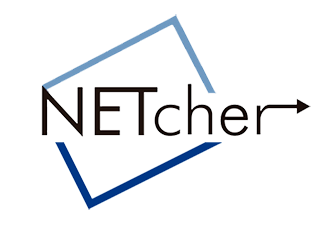Tuesday 13th October 2020
The NETCHER webinar focusing on a student audience was held on Tuesday 13th October and attracted over 85 participants. The main objective of this “EDUCATION” webinar was to share the key messages of the NETCHER project, to raise awareness on a broad academic audience about the trafficking of cultural goods – including cases of theft, illegal archaeological excavations, looting of art during times of war, socio-economic consequences of looting and destruction of archaeological heritage sites – as well as on the significant role that social media plays over this issue.
On the other hand, since one of the objectives of the NETCHER project is to enlarge and strengthen the professional network on this field, the webinar was also an opportunity to highlight some of the possible academic paths, and to inspire the young audience to learn more on the subject and to listen to the experts’ experiences as an example for their own academic and professional journey.
Students from a range of disciplines such as Art, Archaeology, Ancient History, Culture, Law joined the webinar, the majority coming from Europe, but also from other places such as North and South America.
The session lasted almost 2 hours and featured the following speakers and topics:
Morgan Belzic
Morgan is a researcher of the Institut National d’Histoire de l’Art in Paris and a member of the French Archaeological Mission in Libya. After studying at the Ecole du Louvre and the Sorbonne, he graduated in Art History and History & Geography, specialising in Greek and Roman archaeology. He taught at the Ministry of National Education and at the Ecole du Louvre, and he is currently doing his PhD at the Ecole Pratique des Hautes Etudes on the Cyrenaican Funerary Sculptures.
Morgan’s presentation provided insights into the fight against looting and trafficking of Libyan antiquities, with a detailed testimony of how objects can go from the tomb to the art market, and how academic researchers play their role in making authorities aware of illegal activity, and the consequences that such activity can bring.
The current war has brought a huge development of looting and trafficking of archaeological pieces, and a new conscience of the role played by the specialists. Archaeologists fight against this phenomenon, documenting the destructions of archaeological remains in Libya, and the sales and seizures of archaeological material on the international Art Market. During recent years, an important cooperation has been initiated between the different actors, especially with Law enforcements, across North Africa, Europe, and United States.
Andris Kairiss
Andris received a Master’s degree in sociology from the University of Latvia (2002) and Diploma in Law from the Police Academy of Latvia (2006). Since 2019, he has been a PhD oec. candidate at Riga Technical University. Currently he is a Manager of the nation-wide ESF project in the field of reduction corruption and shadow economy.
The presentation from Andris focused on the Damage Assessment Aspects – Looting of Archaeological sites in Latvia and provided the audience with an overview of criminal offences which concern Archaeological Sites & Antiquities. The presentation addressed also issues of assessing damages done to archaeological sites in several European countries.
Due to their commodity value archaeological sites often become targets of offences committed with the aim to get antiquities. In the process of illegal obtainment of antiquities harm is being done to the archaeological site itself. Damages done to archaeological sites due to illegal activities relate not only to losses in terms of culture and historical knowledge, but also to a wider range of socio-economic interests. These damages are not only direct and immediate, they have long-lasting and in many cases irreversible consequences from both cultural and socio-economic points of view.
Andris concluded that there is no unified approach to monetary assessment of damage caused to archaeological heritage at the global or European level.
By virtue of socio-economic benefits granted by the archaeological sites, the loss of development potential caused by the damage thereto should be evaluated.
Zsuzsanna Vegh
Zsuzsanna Vegh is a postdoctoral researcher of Egyptology. Her research on the antiquities trade on social media started with a postdoctoral project at the University of Edinburgh in 2019. Currently she is a project curator of the Circulating Artefacts project at the British Museum.
Antiquities Trafficking on Social Media was the main topic of Zsuzsanna’s presentation, and several case studies were shared along with a brief overview of the current regulations governing the various social platforms.
There is a growing awareness of the role that social media play in facilitating the trade in illicit antiquities. Mediums such as Facebook, Instagram, YouTube, and WhatsApp provide ideal tools for looters and traffickers to communicate with one another unhindered and largely undetected.
The audience learnt that after raising awareness of such issues by organisations engaged with the fight against the illicit antiquities trade, Facebook has banned users trading in historical artefacts on the site, but more robust policing of the online sales of artefacts is still needed.
Lucas Verhaegen
Lucas has a Bachelor’s degree in Agronomy and Biochemistry and first worked in the private sector for a few years, before fulfilling his dream-to become a police officer.
Based in Brussels, Lucas focused on criminal investigation with a specialization in the follow-up of itinerant criminal groups from Eastern Europe.
Lucas joined the ART unit in 2005 (specializing in the fight against illegal trafficking of cultural goods) and has specialized further in this field.
Lucas shared with the participants the most interesting and varied aspects of his professional career.
Notably in 2015, it was decided to abolish the ART unit completely but as ART crime requires a certain amount of expertise, the hierarchy decided that Lucas could continue in this function.
In addition, Lucas shared details of a fascinating case that law enforcement agents successfully solved from a judicial perspective. However, as is often the case in such examples, the financial investigation is still in progress and difficulties arise given the complex structures worldwide and problem of local cooperation.

